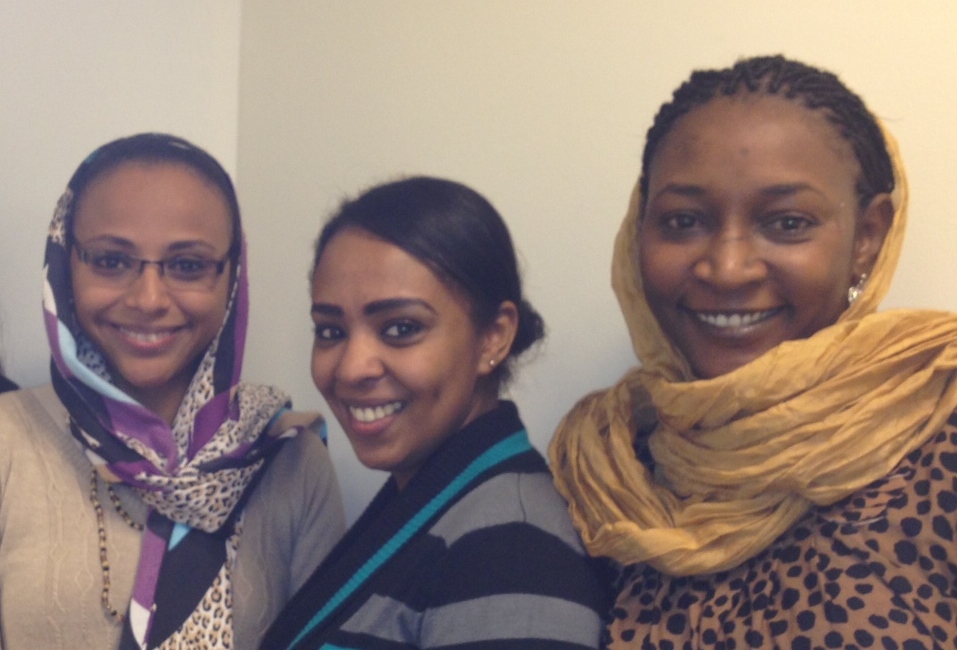Aid transparency in Sudan: “Donors should walk the talk”
Three Sudanese civil society leaders discuss how donors can set the tone.
What does aid transparency matter if there’s no trust in government? How can the data be used?
Three leaders from Sudan, all Atlas Corps Fellows, explored this idea when they visited the Oxfam America offices during Global Transparency Week.
“It’s more than give me the money and give me the report. It’s more than this.”
Conversations in aid transparency from Publish What You Fund on Vimeo.
All three women have experience being on the receiving end of aid dollars in their respective organizations, but discussing donors as responsible to them as citizens was a different matter.
“Our donors are always asking us for information and reports, but we also need to make the same demands on them,” explained Zuhal Ahmed Fadl from Nyala, Sudan. Fadl has worked with various programs on gender and internally-displaced people run by international NGOs such as Care and World Vision in Sudan. As an Atlas Crops Fellow, she is currently supporting Oxfam America’s gender justice program and policy work.
“When the government is giving incorrect information about [budget] numbers, it’s very important for donors to work with civil society and build accountability. It’s difficult for me to trust the government’s reports to aid donors about how they used the funding.”
However, Fadl said that it’s not only government to blame.
“Donors focus on reports and they are not monitoring or following up properly. This creates disincentives for the government and they don’t build the tools or skills that would result in aid effectiveness. More transparency and communication is needed within aid partnerships,” says Fadl, who has eight years of nonprofit experience in operations, project management, and monitoring and evaluation.

“I wouldn’t deny there is some corruption in some NGOs,” echoed May Abd Elnasir, who has been a radio and TV presenter in Sudan and in Egypt and is now an Atlas Corps Fellow at Voice of America, expanding journalistic storytelling skills. She has also conducted political science research and worked on many media monitoring projects, including the Referendum of Sudan and an Egyptian parliamentary election.
“But when donors only show up when the funding is finished, they can’t see what really happened,” she says.
“Donors often set the tone. Unfortunately aid program priorities are built on donors’ interests and their lack of transparency influences civil society,” agreed Neimat Abubaker-Abas of Khartoum, an Atlas Corps Fellow at Women for Women International who is working on their Men’s Engagement Program. Neimat has worked with local groups and university students in organizing political campaigns and raising public awareness about civil and human rights in Sudan. Neimat became the youngest female political leader of the New Forces Democratic Movement and was a candidate for the National Parliament in 2009.
“Aid donors should focus more on how to encourage accountability, not just give money,” she suggested. “How are program priorities determined? What activities are being funded and where? Donors can help improve good governance with more aid transparency. That’s often linked to investments in health and education and thus women.”
“We need more inclusion of women in government and aid budgeting processes,” Fadl reminded us.
“Of course normal people don’t care about where the money came from. They are only passionate about whether their lives are getting better.”